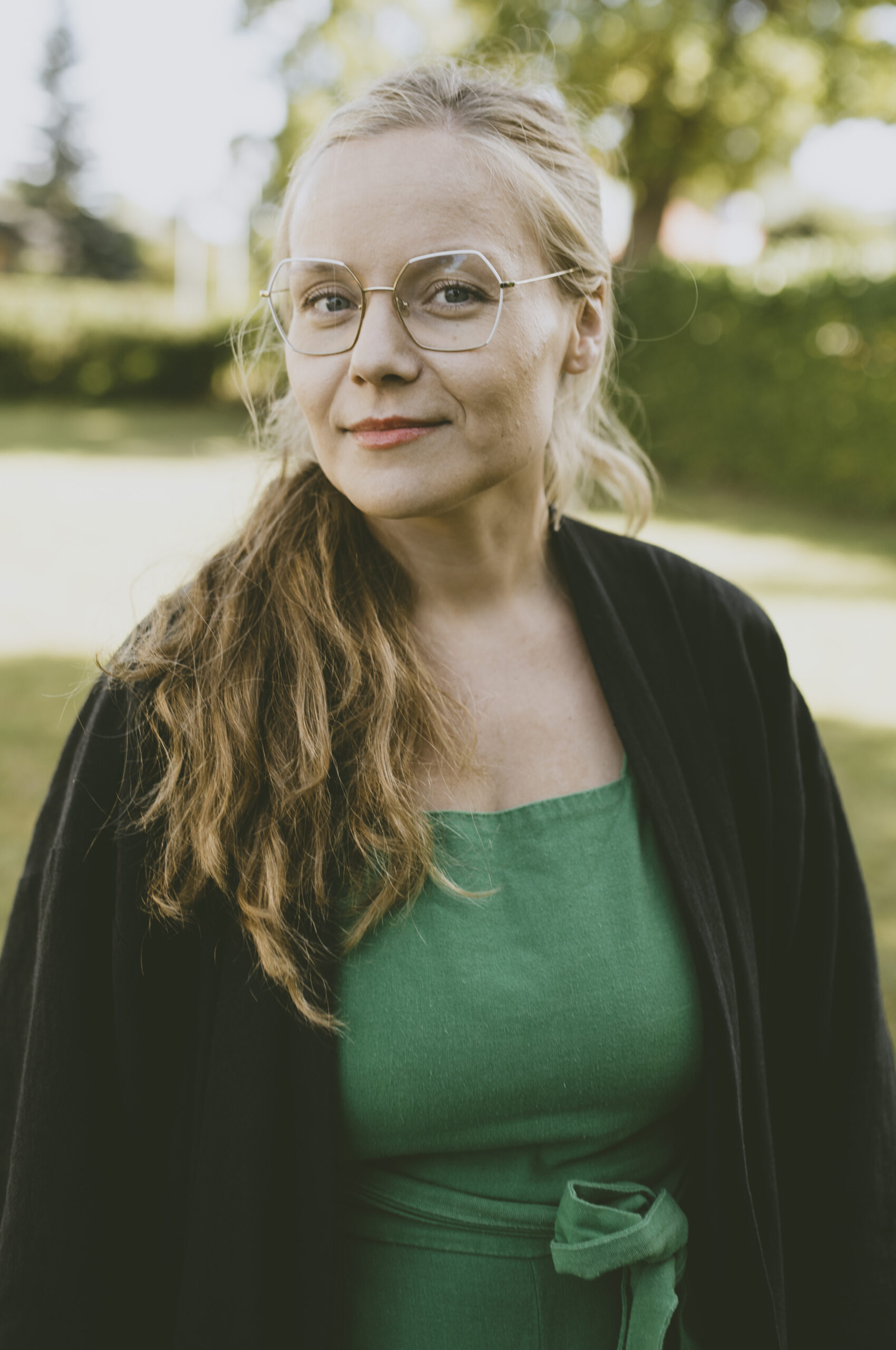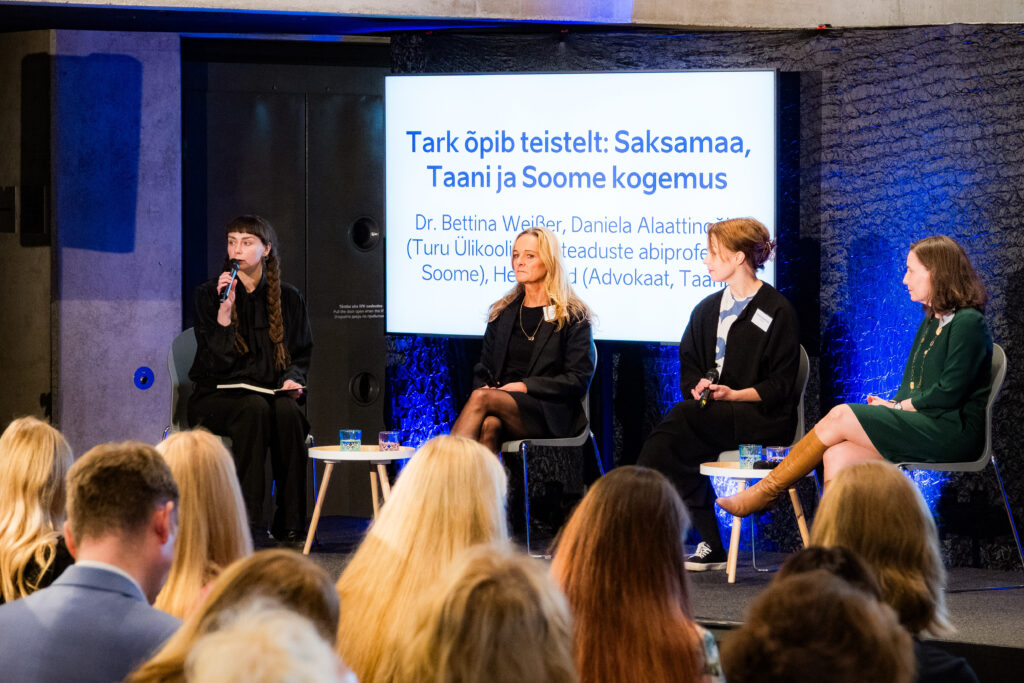Johanna Nejedlová: sexual education must include prevention of violence, but it should also include fun
Despite the fact that the Czech Republic has not ratified the Istanbul Convention and that, according to NGOs, government politicians are not particularly progressive on the issue of sexual violence, they have transitioned to a consent-based law.
Johanna Nejedlová is a Czech activist and co-founder of Konsent, an NGO with a vision of a world where respect and consent form the basis of all interactions. Konsent’s team is running a comprehensive programme on sexual and relationship education for both children and adults, offering workshops and resources for parents and teachers, as well as sexual harassment prevention training for universities, businesses, young people, and educators. Nejedlová was also instrumental in a years-long campaign to reform the Czech Criminal Code’s definition of rape. This reform was passed this year, with the new law set to take effect at the beginning of 2025.
Something good in Czech Republic
While other countries adopting the so-called consent law had already ratified the Istanbul Convention, the Czech Republic stands apart. Johanna Nejedlová describes the political landscape and the elected politicians as largely unprogressive on issues of sexual violence. “For them, it’s just not a priority to address this issue,” she remarks.
When Nejedlová and her team at Konsent began lobbying for a legal shift, the process met loud opposition from politicians and professionals in the field, including lawyers and judges. However, she believes the general public largely supported the change, celebrating the adoption of the consent law. “Young people, especially, were thrilled! After our country’s refusal to ratify the Istanbul Convention and the failure to pass the equal marriage act this year, it felt like at least something positive was happening in the Czech Republic.”
Nejedlová notes that Czech society is becoming increasingly aware of issues surrounding sexual violence. In 2015, 63 percent of people believed victims bore partial responsibility, but by 2022, that figure had fallen to 40 percent. “There’s significant progress in how people view sexual violence, and I believe if we were to conduct this survey again after the whole debate around the consent-based law, we’d see even better results.”
She believes most people understand that engaging in sex without consent is unacceptable. “People want to enjoy sex, and they want their partner to enjoy it too. So most of them have consensual sex—there’s just a small part of society that doesn’t follow this principle.” 1

Johanna Nejedlová. Photo: private
Law change must be accompanied by education
According to Johanna Nejedlová, one of the most pervasive myths surrounding sexual violence and consent laws is the belief that many women falsely report rape or sexual violence, and that a change in the law would only make it easier to do so. “But from what we know, this is simply not the case in any country where the law has changed,” she says. She adds that statistics show false reporting rates for sexual violence are no higher than for any other crime. “I often draw a parallel with corruption. When we talk about strengthening laws to protect society from corruption, we don’t hear people say, ‘We can’t do it because there will be more corruption reports.’ So why is this the reaction when we discuss something that primarily affects women?”
There’s also a linguistic issue at play. In Czech, the word for rape, znásilnění, closely resembles the word for violence, which leads some people to argue that rape must involve physical violence. “Lots of people were saying it cannot be rape, if there is no violence! They often overlook that violence doesn’t have to be physical,” Nejedlová points out.
Nejedlová believes that public debate around proposed law changes already fosters a better understanding of sexual violence. However, she emphasises the need for a solid strategy to educate all relevant parties once a law is adopted. “The police, judges, prosecutors, hospital staff, gynecologists, and educators—everyone who interacts with victims of sexual violence—needs to be educated on the new law.”
Consent is better understood in stereotypical situations
Nejedlová notes progress in how schools address the prevention of sexual violence, including a shift from targeting only girls and young women to involving boys as well. However, she finds that young people’s understanding of the topic is inconsistent. “It varies greatly from school to school, class to class, and it’s challenging to find a clear pattern. Some classes are remarkably advanced, more aware than the general public about consent, the concept of sex, and tolerance towards LGBTQ+ people. But in other classes, there’s virtually no information.”
Konsent has observed that younger children often have a clearer sense of what is acceptable and what is not. Nejedlová suggests this clarity may blur with age and personal experience. She adds that students tend to recognize violence more readily in stereotypical situations—such as when a man is the perpetrator and a woman the victim. “But if you switch the roles, it’s harder for them to see it as violence.”
Through her work at Konsent, Nejedlová has identified a need for sustained, comprehensive education on these issues. A single workshop, she believes, is insufficient; students benefit from repeated sessions that allow for revisiting and discussing topics over time. While many students grasp the general concept of consent and agree with it, they don’t always see how to apply it to their own lives. “Without concrete examples, it’s very difficult for them to see where someone did wrong.”

Johanna Nejedlová (pictured on the left) is conducting consent awareness initiatives on the streets of Prague. Photo: private
Youth need both boundaries and fun
Nejedlová highlights the importance of setting and respecting boundaries. “The most essential thing for young people is learning to understand their own boundaries, communicate them clearly, and respect those of others. Talking openly about sex and sexuality is vital—without this, it’s hard to set boundaries if you’re not accustomed to discussing it. This should be central to any programme aimed at preventing sexual violence and harassment.”
The team at Konsent has found that prevention alone isn’t enough; young people also need positive messages. Instead of focusing solely on preventing violence and harassment, they aim to provide students with information on enjoying a high-quality, fulfilling sex life. “It should be fun!”
Ratifying conventions and raising children
When asked about the key issues for Czech feminists today, Johanna Nejedlová points to the long-awaited ratification of the Istanbul Convention as a priority. She also notes the underrepresentation of women in politics, with only 20 percent in the Senate and 25 percent in the Chamber of Deputies.2 However, she sees childcare as the most pressing issue. Due to a shortage of kindergarten places, many mothers find themselves unable to return to work.
“Some women stay at home until their children are four years old, which creates financial problems: an increased pay gap, and significant career gaps. It also affects partnership dynamics, making them more unequal when one person is home for an extended period. Meanwhile, financial support from the state during parental leave is very low.” The state provides a total of 350,000 Czech crowns (about €13,800) for parental leave, distributed over the entire period. If a parent stays home for six months, they receive around €2,300 per month, but if they must stay home for three years due to a lack of childcare options, this drops to under €400 per month. “Only women with high salaries can afford private childcare, which is expensive. A teacher, for example, would have to stay home until finding a place in a state facility.”






